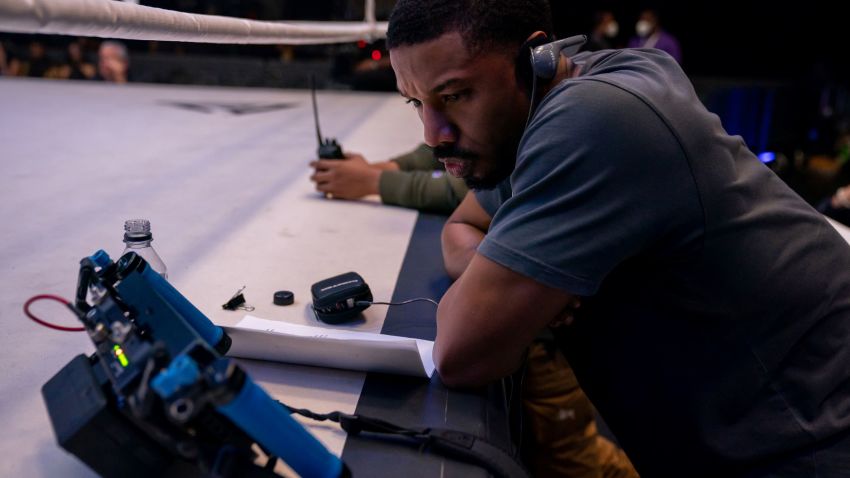Editor’s Note: Peniel E. Joseph is the Barbara Jordan chair in ethics and political values and founding director of the Center for the Study of Race and Democracy at the LBJ School of Public Affairs at the University of Texas at Austin, where he is a professor of history. He is the author of “The Third Reconstruction: America’s Struggle for Racial Justice in the Twenty-First Century.” The views expressed here are his own. View more opinion on CNN.
Note: Spoilers follow for “Creed III.”
Michael B. Jordan and Jonathan Majors, two of the most talented actors of their generation, are redefining Black masculinity in America.
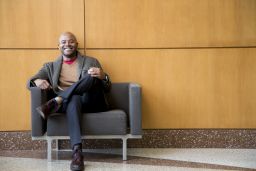
They took the box office by storm over the weekend as stars of “Creed III” — the blockbuster spinoff from the “Rocky” movie franchise that follows the trajectory of Adonis Creed, the son of Rocky nemesis turned martyred friend Apollo. Its record-breaking opening made it the biggest sports movie opening of all time.
“Creed III” is more than a boxing film. It is an artistic meditation on the complications of Black masculinity in the 21st century. Jordan, who stars and directs, and Majors, whose rising star is also on display as the complicated villain Kang in Marvel Studios’ latest “Ant Man” film, have been strikingly open in expressing their mutual admiration and love for one another as friends and as colleagues.
During one interview Majors suggested future collaborations would be in store, ones that would remind the public of the film partnership between Robert DeNiro and Al Pacino, two of the most celebrated and iconic actors that emerged from the New Hollywood era of the 1970s. Jordan and Majors, both still only in their 30s, represent an enormously positive evolution in and bright future for the depiction of Black men in movies and television. Both on screen and in real life, they are modeling and normalizing a vision of Black masculinity capable of defying homophobic tropes regarding the ability of boys and men to reveal their vulnerability and openly profess love.
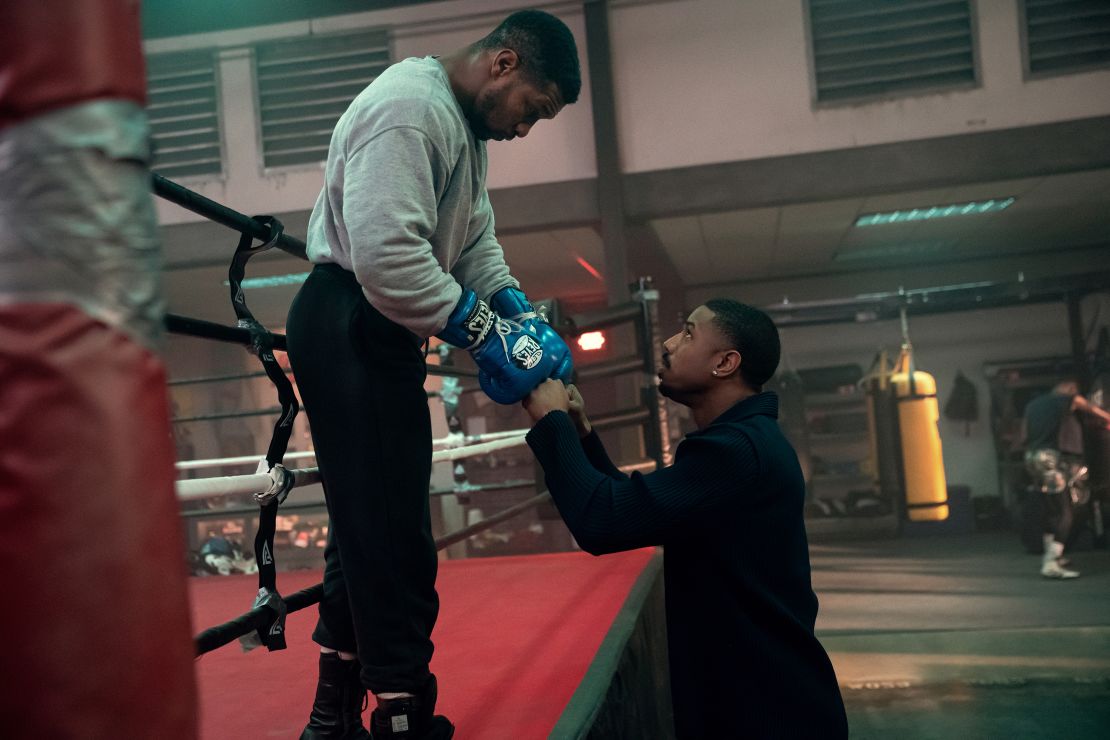
After photos of the two actors playfully embracing one another recently went viral, the backlash was fierce — driven by homophobic reactions rejecting such open affection displayed by two Black men -— and further response was swift, from those applauding their courage to display love and admiration that Black men are too often punished for showing in public.
This backlash has a broader context. Majors, who displayed his muscular physique on the recent cover of Ebony while holding bouquets of roses, was also trolled for being unmanly. Rap artist A$AP Rocky came in for similar treatment after the he appeared on the cover of Vogue with his partner, music icon and business mogul Rihanna. Rocky stood holding their smiling son in the background as Rihanna commanded the front part of the cover. Haters pilloried Rocky for being too feminine and submissive — rather than cheering his obvious love for his son and viewing the tableau as an embodiment of modern family.
These seemingly isolated but ultimately related controversies help to illuminate the persistent toxicity of long-standing stereotypes about Black men. The public displays of friendship between Jordan and Majors represent a significant and welcome disruption of the cultural boundaries that too often impede Black men’s ability to publicly express love for each other.
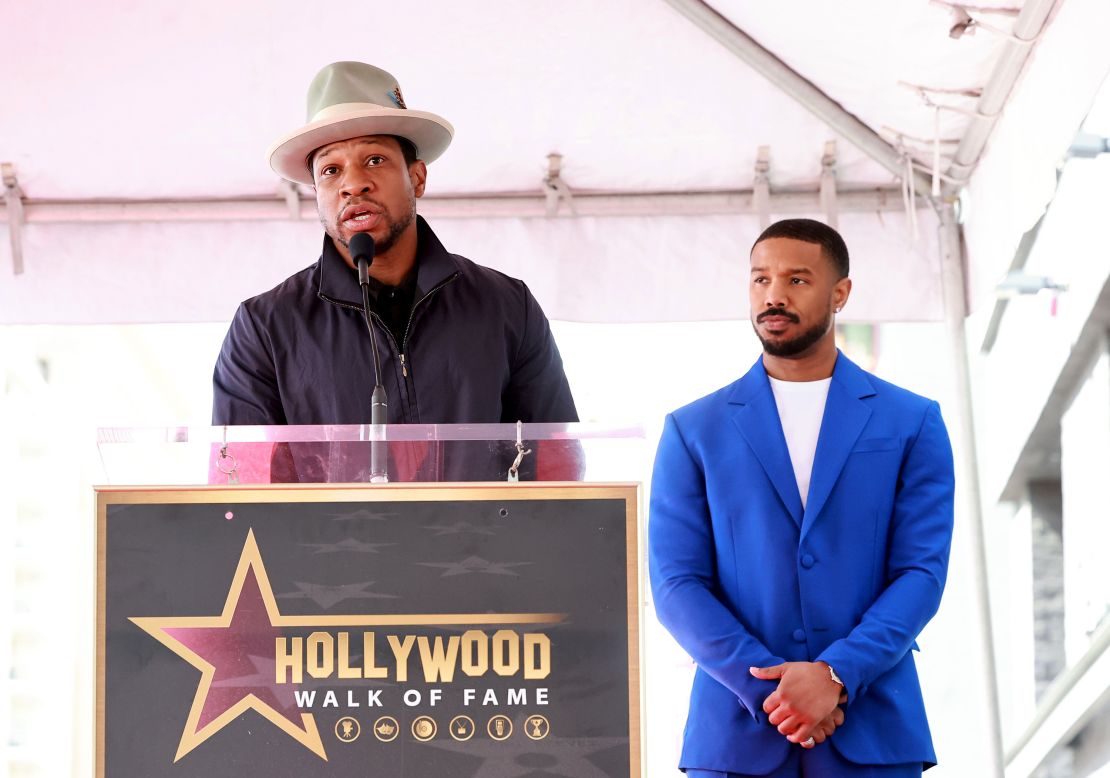
Majors, joined by Black Panther director Ryan Coogler, gave heartfelt speeches in praise of Jordan recently as he received a coveted star on the Hollywood Walk of Fame in Los Angeles. In his remarks, Majors liberally used the word “love,” and his embrace of Jordan afterward was a truly beautiful moment.
What makes such public displays of Black male love such as these so striking and, to some, so very threatening?
Blackness encompasses infinite numbers of identities, emotions, feelings — and yet many people treat Black men and boys as threats, anticipating aggression and seeing it even where it does not exist. Black boys tend to be punished in school at higher rates than their White counterparts for the same behavior. Black men are more likely to receive harsher sentences for the same crimes as White men.
As distressing as these real-world statistics are, the dynamics behind them also shape expectations for what we see in popular culture for audiences of all racial backgrounds. Black male friendship and emotional vulnerability shared between two Black men defies what so many of us (including Black men ourselves) have come to expect on screen. Performances like Jordan’s and Majors’s take all of us out of our natural comfort zones.
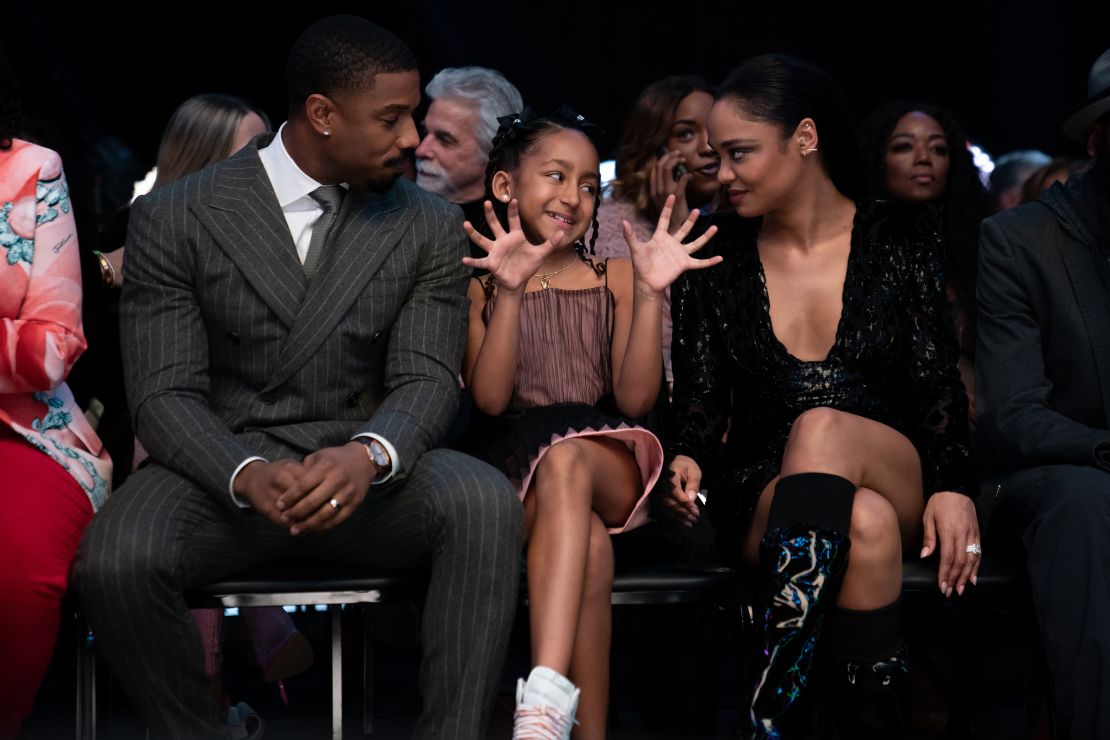
But movies can, at their best, challenge even our most tenacious stereotypes with the bracing complexity of human experience. In “Creed III” Jordan and Majors play a pair of gifted athletes who use boxing to transform their material circumstances. While we may have all witnessed a variation of this story before (especially in the original Oscar winning 1976 “Rocky” film starring Sylvester Stallone in a star-making turn), the film unfolds in ways that subvert this familiar set up.
The viewer sees Jordan’s Adonis Creed in multiple scenes relishing his role as a loving husband and tender, affectionate father who expertly uses American Sign Language to communicate with his seven-year-old daughter. The film also lingers on the portrayal of vulnerability when Creed’s unexpected reunion with Majors’ Damian Anderson evokes feelings of trauma, shame and guilt over a long-buried incident in their past. Majors injects humanity into Anderson’s palpable rage over an unjust prison sentence and grief over being abandoned by his one-time best friend. We relate to him even when we disagree with his actions.
America’s long history of racial injustice and patriarchy continues to impact Black men in particular and peculiar ways. At once criminalized by law enforcement on the one hand, and envied for their stereotyped innate athletic abilities and sexual powers on the other, Black men have been left with little to no room to be human. To cry, laugh, make mistakes. To express love (whether romantic or platonic) for one another. To root for each other. To celebrate our collective achievements and mourn for the loved ones we have lost.
Amidst all of the real and illusory promise of post-George Floyd America, there is genuine beauty in the ability of Black men — on screen and in real life — to transcend toxic limits on our collective humanity — by defiantly, hopefully, and gracefully choosing love over fear.
